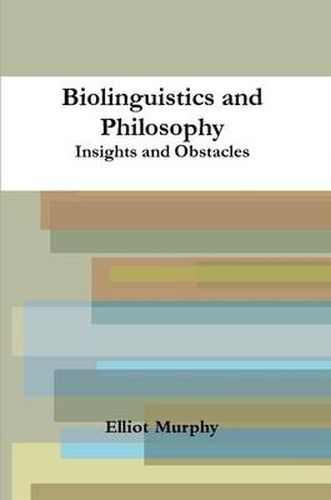Readings Newsletter
Become a Readings Member to make your shopping experience even easier.
Sign in or sign up for free!
You’re not far away from qualifying for FREE standard shipping within Australia
You’ve qualified for FREE standard shipping within Australia
The cart is loading…






This title is printed to order. This book may have been self-published. If so, we cannot guarantee the quality of the content. In the main most books will have gone through the editing process however some may not. We therefore suggest that you be aware of this before ordering this book. If in doubt check either the author or publisher’s details as we are unable to accept any returns unless they are faulty. Please contact us if you have any questions.
This study explores the current stage of generative linguistics, the Minimalist Program, and examines its philosophical implications, tracing the basic themes back to the seventeenth-century scientific revolutions and the nineteenth-century biological tradition of formalism. Expositions of the 'philosophy of biolinguistics' have previously been few and short, and exploring the insights of recent theoretical linguists and neurobiologists can shed some much needed light on the problems posed by analytical philosophy, such as traditional questions of 'reference' and 'truth.'
$9.00 standard shipping within Australia
FREE standard shipping within Australia for orders over $100.00
Express & International shipping calculated at checkout
This title is printed to order. This book may have been self-published. If so, we cannot guarantee the quality of the content. In the main most books will have gone through the editing process however some may not. We therefore suggest that you be aware of this before ordering this book. If in doubt check either the author or publisher’s details as we are unable to accept any returns unless they are faulty. Please contact us if you have any questions.
This study explores the current stage of generative linguistics, the Minimalist Program, and examines its philosophical implications, tracing the basic themes back to the seventeenth-century scientific revolutions and the nineteenth-century biological tradition of formalism. Expositions of the 'philosophy of biolinguistics' have previously been few and short, and exploring the insights of recent theoretical linguists and neurobiologists can shed some much needed light on the problems posed by analytical philosophy, such as traditional questions of 'reference' and 'truth.'